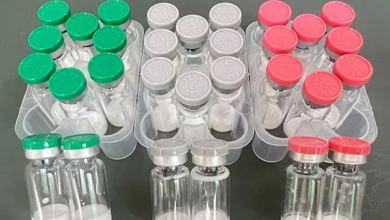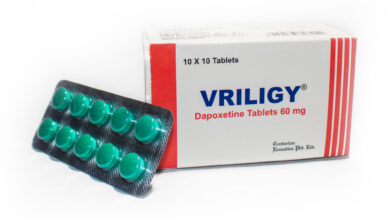Warning Signs of High Blood Pressure: 8 Vital Questions & Answers

High blood pressure, also known as hypertension, is a common condition that affects millions of adults worldwide. It occurs when the force of blood against the walls of your arteries is consistently too high, putting extra strain on your heart and blood vessels.
If left untreated, high blood pressure can lead to serious health problems, including heart disease, stroke, and kidney failure. Therefore, it’s crucial to be aware of the warning signs and take appropriate action to manage your blood pressure. In this article, we’ll discuss some red flags for high blood pressure and provide practical advice for adults who may have concerns about their health.
1. What are the most common red flags for high blood pressure?
Headaches
Frequent headaches, particularly in the morning, can be a warning sign of high blood pressure. However, it’s important to note that not all headaches are related to hypertension, so it’s essential to monitor your blood pressure regularly.
Dizziness and lightheadedness
Feeling dizzy or lightheaded, especially when standing up quickly, can indicate high blood pressure. These symptoms occur due to reduced blood flow to the brain, caused by elevated blood pressure levels.
Blurry vision
High blood pressure can damage the blood vessels in your eyes, leading to blurred or impaired vision. If you notice sudden changes in your vision, it’s essential to get your blood pressure checked.
2. Can drinking water lower blood pressure?
While staying hydrated is essential for overall health, simply drinking water is not a cure for high blood pressure. However, adequate hydration can support your cardiovascular system and promote healthy blood pressure levels. It’s crucial to maintain a well-balanced diet, reduce salt intake, and follow your healthcare provider’s recommendations to effectively manage high blood pressure.
3. Can you physically tell if your blood pressure is high?
In most cases, high blood pressure does not cause noticeable physical symptoms. It is often referred to as the “silent killer” because it can remain undetected for years. Regular blood pressure monitoring is essential to detect and manage hypertension. Home blood pressure monitors are widely available and can help you keep track of your readings.
4. When should you be concerned about blood pressure?
Ideally, blood pressure should be below 120/80 mmHg. If your blood pressure consistently exceeds this range, it’s important to consult your healthcare provider. They can assess your overall health, consider your risk factors, and provide appropriate guidance to manage your blood pressure effectively.
5. How long can you have high blood pressure before it causes damage?
High blood pressure can cause damage to your blood vessels, heart, and other organs gradually over time. The duration it takes for complications to develop varies from person to person. However, untreated hypertension can lead to serious health problems, including heart attacks, strokes, and kidney damage. That’s why early detection and proper management are crucial.
6. What causes blood pressure to spike?
Several factors can cause a temporary spike in blood pressure, including stress, physical exertion, certain medications, and consuming caffeine or alcohol. However, if your blood pressure consistently remains high, it may be an indication of underlying hypertension. Lifestyle factors such as an unhealthy diet, lack of physical activity, smoking, and excessive alcohol consumption can contribute to chronic high blood pressure.
7. What should you not do with high blood pressure?
If you have high blood pressure, it’s important to avoid or minimize certain behaviors that can worsen the condition. These include:
- Consuming excessive salt: High sodium intake can raise blood pressure levels. Aim to reduce your salt intake by choosing fresh, whole foods over processed and packaged ones.
- Smoking: Smoking damages blood vessels and raises blood pressure. Quitting smoking is crucial for managing hypertension and improving overall health.
- Ignoring high stress levels: Chronic stress can contribute to elevated blood pressure levels and increase the risk of cardiovascular problems. When you’re under stress, your body releases stress hormones that can constrict blood vessels and raise your blood pressure.
8. I suspect I have high blood pressure – now what?
Recognizing the warning signs of high blood pressure and taking appropriate action is vital for maintaining your health and well-being. While high blood pressure often goes unnoticed, headaches, dizziness, lightheadedness, and blurred vision can serve as red flags. However, it’s important to remember that these symptoms can have various causes, so regular blood pressure monitoring is crucial for an accurate diagnosis.
Remember, high blood pressure is a silent condition that can lead to severe complications if left untreated. By being proactive and monitoring your blood pressure regularly, you can take control of your health and make necessary adjustments to manage your blood pressure effectively.
If you have concerns about your blood pressure or notice any warning signs, don’t hesitate to consult your healthcare provider. They can provide accurate diagnosis, guidance, and personalized recommendations tailored to your specific needs. If needed, your general practitioner or family doctor may also refer you to a clinic or hospital with dedicated cardiology services to ensure your condition is properly treated and managed.
Prioritizing your cardiovascular health through regular check-ups, healthy lifestyle choices, and appropriate medical intervention when needed is the key to managing high blood pressure and reducing the risk of associated complications. Take charge of your health today and make your well-being a top priority.



